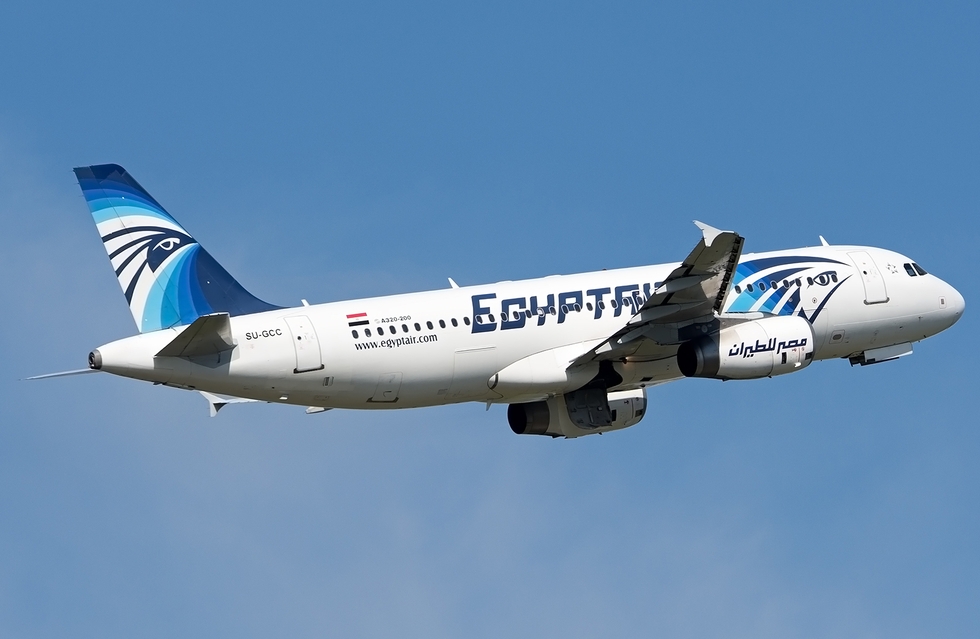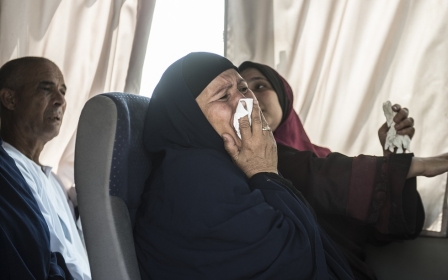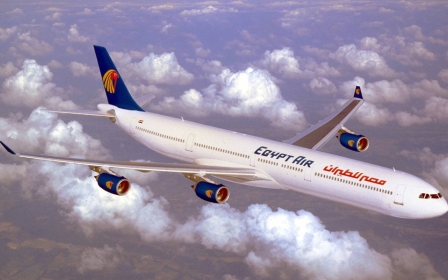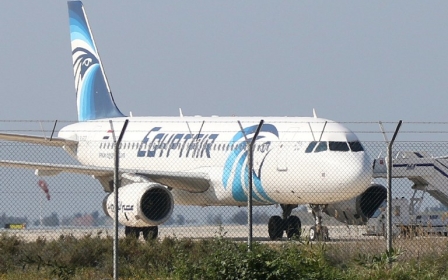EgyptAir investigation set to focus on 'explosive device' theory

Air crash experts told Middle East Eye on Thursday that initial investigations into the disappearance of EgyptAir flight MS804 will probably focus on the possibility that an explosive device placed onboard may have brought down the plane, with security at Paris's Charles de Gaulle airport likely to be scrutinised.
Two experts said investigators would examine whether the Airbus A320 was brought down by an explosive device.
The EgyptAir flight from Paris to Egypt was missing and presumed to have crashed in the Mediterranean after disappearing overnight, Egyptian officials said on Thursday.
Phil Giles, a former British investigator with the UK’s Air Accidents Investigation Branch, said that “modern aircraft don’t just break up in the sky” and that the Airbus A320 had a “very good safety record and was flying in clear weather”.
He said: “It’s a real mystery, but it sounds at this early stage that there could have been some kind of device, either placed on the plane earlier at another airport in some kind of Lockerbie situation or placed on board the plane at Paris, though security is very tight there already. We may see a focus on the air-side staff there in the coming hours and days.“
He added that the aircraft appeared to have crashed in a “very busy bit of airspace” in the eastern Mediterranean, where there is strong civilian and military radar coverage.
In a statement Airbus said the aircraft involved, registered as SU-GCC, was a relatively modern aircraft that was delivered to the airline in November 2003 and had accumulated 48,000 flight hours. Weather reports show that the there were no storms or dangerous weather conditions in the reported area of the crash.
Tony Cable, a retired air accident expert who investigated the 1988 Lockerbie air disaster, told Middle East Eye: “Like all investigations, the Egyptian and international authorities will start with the information they have available, and for now that will primarily be radar data and any messages from the aircraft.”
Cable said that investigators would focus on so-called “primary and secondary radar sources” to attempt to discover if the plane broke up in mid-air, which could suggest a catastrophic technical failure or an explosion. Cable also said that he “would not be surprised” if investigators focused on Charles de Gaulle airport in Paris where the plane originated.
Security at the airport was already heightened, but had been tightened even further in recent months following November's Islamic State (IS) group-claimed attacks in Paris.
Soldiers are still on patrol at many French airports, but attention will no doubt now be focused on how effective more discreet security measures and screening have been. Security was boosted further in March in the wake of IS-claimed attacks in Belgium and an additional 40 police officers were deployed to Charles de Gaulle.
In recent months security analysts have identified the large number of flight-side workers in Paris who come from high-immigrant areas in the city’s suburbs. Last year more than 60 flight-side workers had their security authorisation withdrawn amid fears of Islamic radicalisation after a review of more than 86,000 airport workers.
Earlier this week the head of France’s domestic intelligence service warned of the risk of “a new form of attack” from IS, and said that the country was its top target.
Patrick Calvar, director general of the General Directorate for Internal Security (DGSI), did not detail the threat or suggest aircraft might be attacked, but did say that Europe was in “grave danger” of major unrest in the wake of any fresh terror attacks.
“We risk being confronted with a new form of attack, a terrorist campaign characterised by leaving explosive devices in places where big crowds gather, multiplying this type of action to create a climate of panic," Calvar told a parliamentary committee on national defence in Paris on 10 May.
France has been under a state of emergency since the Paris attacks in November, which killed 130 people, but on Thursday morning the French foreign minister, Jean-Marc Ayrault, said from Charles de Gaulle Airport near Paris that it was too early to comment on the causes of EgyptAir Flight 804’s disappearance.
“Too much unverified information is circulating,” Ayrault told reporters outside the Mercure hotel, where he met with families of the passengers. “If we want to respect the families, the first priority is to wait for information that is reliable before getting into hypotheses and commentaries.”
Thursday's incident comes seven months after an explosive device brought down a Russian passenger jet over Egypt's Sinai peninsula in an attack claimed by IS.
In the wake of that disaster, the militant group said it would continue to target the Egyptian state and visiting westerners, but Egyptian Civil Aviation Minister Sherif Fathy has asked the public not to “jump to conclusions” on the disappearance of the flight.
Speaking to Egypt state-owned Channel One TV, Fathy said: ”Until now this is a disappearance incident. Some plane accidents take years to know the reason behind the incident."
New MEE newsletter: Jerusalem Dispatch
Sign up to get the latest insights and analysis on Israel-Palestine, alongside Turkey Unpacked and other MEE newsletters
Middle East Eye delivers independent and unrivalled coverage and analysis of the Middle East, North Africa and beyond. To learn more about republishing this content and the associated fees, please fill out this form. More about MEE can be found here.




